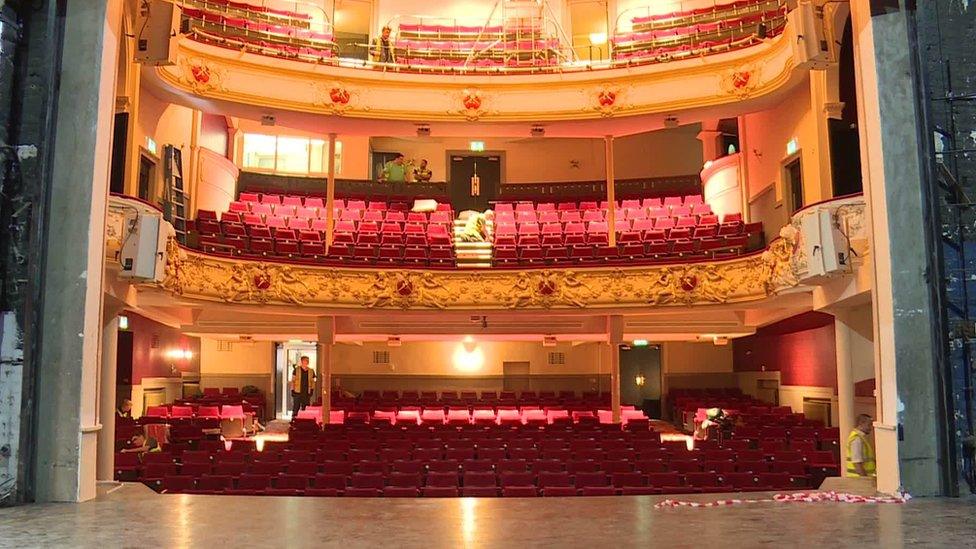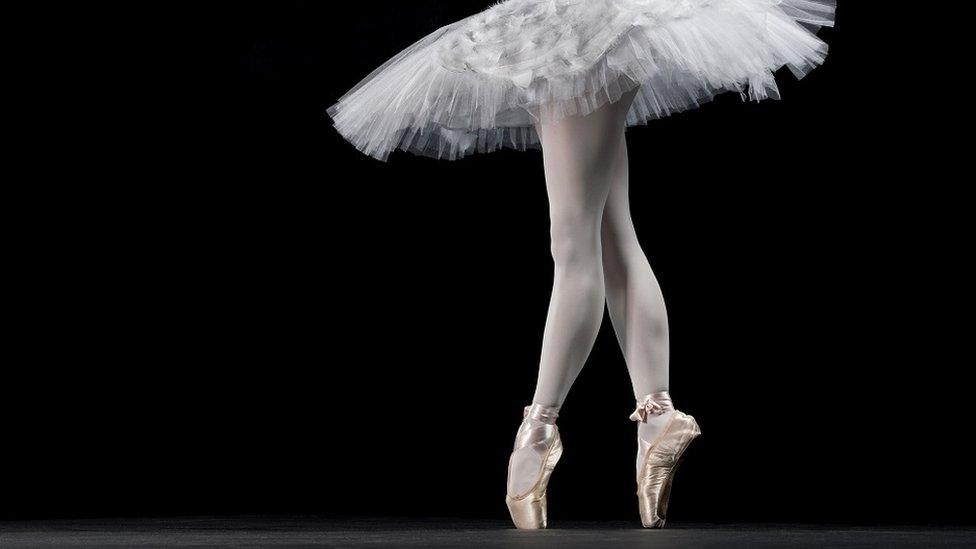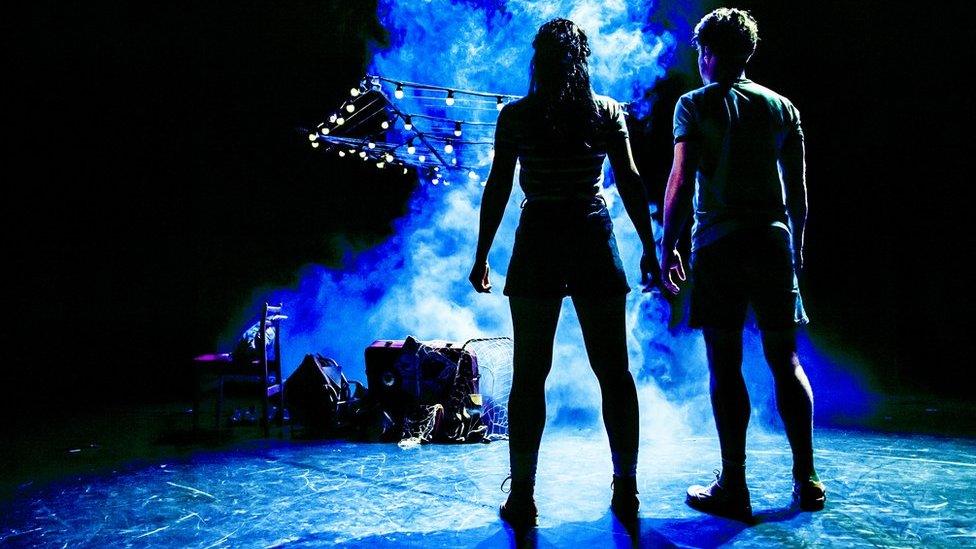Scotland's arts community welcomes £97m fund
- Published

Ayr's Gaiety Theatre lost out on regular funding before coronavirus struck
Scotland's arts community has welcomed a £97m support package intended to protect cultural venues from closure.
It is a share of a £1.57bn fund from the UK government, which the prime minister announced on Sunday.
On Friday, the Scottish government announced a separate £10m fund for arts venues, which cannot yet reopen.
Both announcements come in the face of growing demands from the arts industry for support to see them through the coronavirus crisis.
The latest package, intended to safeguard theatres, galleries, museums and other cultural venues - was described as "the biggest ever one-off investment in UK culture" by the UK government.
A string of theatres have announced plans to make staff redundant in recent weeks, after being closed since the coronavirus pandemic took hold earlier this year.
Scotland could have chosen to spend its share elsewhere, however the first minister said she wanted to assure the £97m would be passed on to the arts and heritage sector "in full".
During the Scottish government's press briefing on Monday, Nicola Sturgeon said she hoped this would provide people working in the sector with "some optimism".
She said: "We very much welcome the announcement from the UK government last night of the significant package of financial support.
"We are now seeking clarity on how different funding arrangements will work and we will engage quickly with those in our culture and her sector to identify the best ways the Scottish government can provide additional help."
Culture Secretary Fiona Hyslop tweeted there were "many culture and heritage venues to support" as she welcomed the package.
Allow X content?
This article contains content provided by X. We ask for your permission before anything is loaded, as they may be using cookies and other technologies. You may want to read X’s cookie policy, external and privacy policy, external before accepting. To view this content choose ‘accept and continue’.
However some industry figures believe the sum is an "afterthought", including Scottish comedian Mark Nelson.
He told the BBC's Good Morning Scotland radio programme that while he welcomed the news, he believed the £97m did not "come close" to what European countries were spending on their cultural treasures.
"I think it's taken a lot of pressure for them to realise this money is needed and for some venues sadly it has come too late," he said.
"We've already seen a couple of great theatres in England close and there's already been venues that have cancelled their panto season which is a huge money spinner for them."
'Despondency and discontent'
River City actress Libby McArthur said actors in Scotland have struggled to find work "for a long time", partly because the focus on arts in the UK is "London-centric".
She said: "There's a lot of despondency, there's a lot of discontent and that happened long before Covid-19.
"What worries me in the climate of scarcity is the high end artists that get the leg up - the ones that have already got ticket prices that are through the roof."

Into The Water theatre production: Many shows closed overnight when lockdown started in March and international tours were cancelled from January
Libby said while pressure for more support was needed, she remained hopeful that arts venues would survive the crisis.
She added: "People underestimate the power of their footfall. People will come in their droves if they feel they have been inspired."
'Help the sector survive'
The £97m for Scotland is a Barnett consequential share of money that Westminster is spending on the arts in England. Northern Ireland will receive £33m and £59m will be sent to Wales.
Culture Secretary Oliver Dowden told BBC Breakfast the package is all "new money" and has two broad aims - to preserve "crown jewel" venues like the Royal Albert Hall and national galleries, while also helping local institutions across the UK.
The Scottish government said it was "pleased" the UK government had listened to its calls to use borrowing powers.
A spokesman added: "Culture is so important to individuals, communities and our country and although this is clearly a substantial amount of funding, significant financial support is needed to help venues and the sector survive."
- Published10 December 2019

- Published3 July 2020
